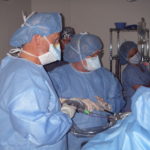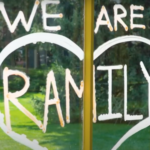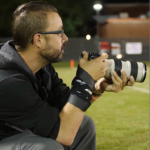By Angela Hayes, Ph.D.
Many of the alumni I work with are going through some sort of career change, and are often confused about the wide range of feelings they have about the change. It’s helpful to remember that, after a lay-off or even a terrific new job opportunity that you chose, you will go through four distinct stages of change.
Denial: This is a general refusal to admit that a change/loss has taken place or an acknowledgment that it has taken place but that it won’t have that much of an effect. In this stage people will say things like “I’m sure this nation-wide hiring freeze will blow over quickly”; “My situation will be different. It will be easy for me to get the job I want”; “I know I was laid-off but I don’t think they were really serious. Once they get back on track I’m sure they will call me to come back to work” and so on.
It’s important to note that denial is a good thing. It’s what keeps you from being suddenly overwhelmed by the reality of your situation. The denial stage helps you ease in to what needs to be done to move on.
Resistance: This stage is certainly the least fun for the person going through it. This is the stage where they’ve come out of denial and strong feelings begin to emerge. Depending on their personality it might be self-doubt, depressed mood and plummeting self-esteem or angry outbursts and blaming others for their difficulties. Regardless of personality, people tend to feel overwhelmed and anxious during this stage. They usually have difficulty sleeping and focusing on the task at hand. Some report feeling as if they are “losing it.”
Although it doesn’t seem like it at the time, resistance is a good thing as it means you are making progress through the stages. If you find yourself in this stage, remember that it’s temporary and that talking/writing about your feelings will help you move through it more quickly.
Exploration: After the struggle of the resistance stage, people generally shift to a more positive, future-focused stage. They realize they are going to get through this and begin to have much more excitement about the future. They generally want to swing into action without necessarily thinking through the best way to do things. Their creativity and energy is at its peak during this stage. This is a great time to brainstorm all of the possibilities as you move forward in your job search. It’s best to set short-term, rather than long-term goals in this stage. Because of the increased energy, and how much better you feel, everything sounds like a brilliant idea in this stage, so you’ll want to wait until the next stage to make final decisions.
Commitment: In this stage people have worked through the emotions, discovered new ways of pursuing their job search and are ready to face a new day. This is the stage where they will talk about everything they have learned from the change, the new connections they’ve made, and that things have turned out better than they expected.
This is the time to acknowledge/celebrate your success and set more long term goals for the future of your career.

Angela Hayes serves as the Associate Director of Alumni and Online Career Engagement. Prior to coming to CSU, she worked as the Assistant Director of Alumni and Graduate Student Career Services at Kansas State University. She has a B.S. in Psychology, an M.S. in Industrial/Organizational Psychology and a Ph.D. in Professional Coaching and Human Development. She’s a nationally Board Certified Coach and a nationally Certified Health and Wellness Coach.
She has a passion for helping others to see their lives as full of possibilities and un-tapped potential. She views changes/transitions (both planned and unplanned) as opportunities for individuals to discover and plan out what they really want from their careers and lives.


































































